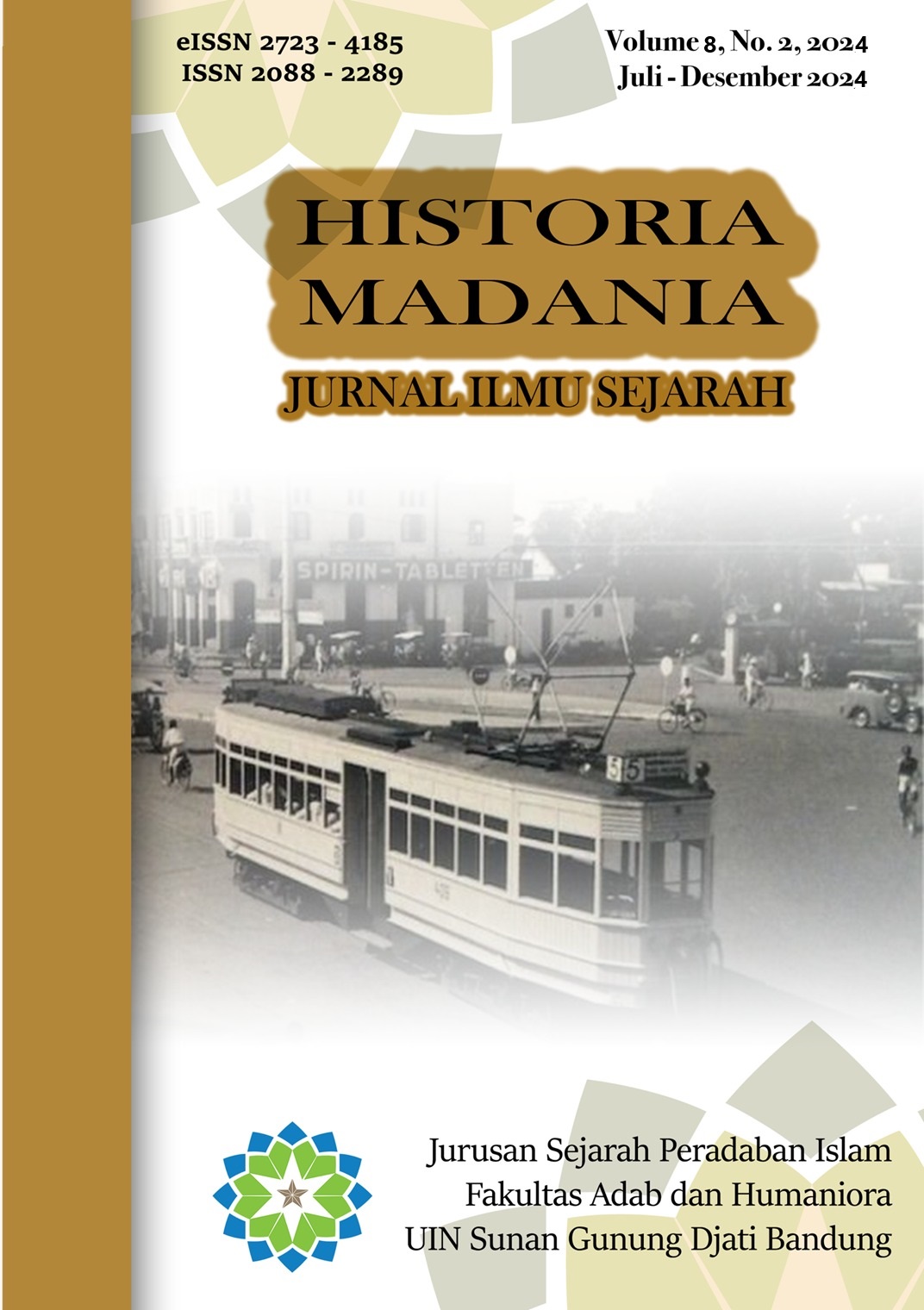Perkembangan Sekolah Guru: Hoogere Kweekschool Purworejo Tahun 1914-1930
DOI:
https://doi.org/10.15575/hm.v8i2.41515Abstract
This study examines the establishment and development of Hoogere Kweekschool in Purworejo between 1914 and 1930, emphasizing its role in shaping the educational landscape in colonial Indonesia. During the early 20th century, education in Indonesia remained inaccessible for the majority, with opportunities restricted to elite circles, primarily to fulfill colonial administrative needs. The founding of HKS marked a significant step in expanding access to advanced teacher training for local youth, aligning with the colonial government's Political Ethical Policy aimed at improving education for indigenous populations. HKS Purworejo, designed to train graduates of kweekschools into highly skilled teachers, offered advanced curricula including pedagogy, Dutch language, mathematics, and general sciences. Using historical research methods, this study explores primary and secondary sources to assess the institution's influence. Findings reveal that HKS Purworejo not only fulfilled colonial labor demands but also contributed significantly to the intellectual and social awakening of Indonesians, laying foundations for the post-independence education system. The study underscores the dual role of colonial education as both an instrument of exploitation and a pathway to empowerment.
Downloads
Published
2024-12-30
How to Cite
Soniadewi, N. N., & Charismana, D. S. (2024). Perkembangan Sekolah Guru: Hoogere Kweekschool Purworejo Tahun 1914-1930. Historia Madania: Jurnal Ilmu Sejarah, 8(2), 193–206. https://doi.org/10.15575/hm.v8i2.41515
Issue
Section
Articles
Citation Check
License
Authors who publish with this journal agree to the following terms:
- Authors retain copyright and grant the journal right of first publication with the work simultaneously licensed under a Creative Commons Attribution License that allows others to share the work with an acknowledgment of the work's authorship and initial publication in this journal.
- Authors are able to enter into separate, additional contractual arrangements for the non-exclusive distribution of the journal's published version of the work (e.g., post it to an institutional repository or publish it in a book), with an acknowledgment of its initial publication in this journal.
- Authors are permitted and encouraged to post their work online (e.g., in institutional repositories or on their website) prior to and during the submission process, as it can lead to productive exchanges, as well as earlier and greater citation of published work (See The Effect of Open Access).


